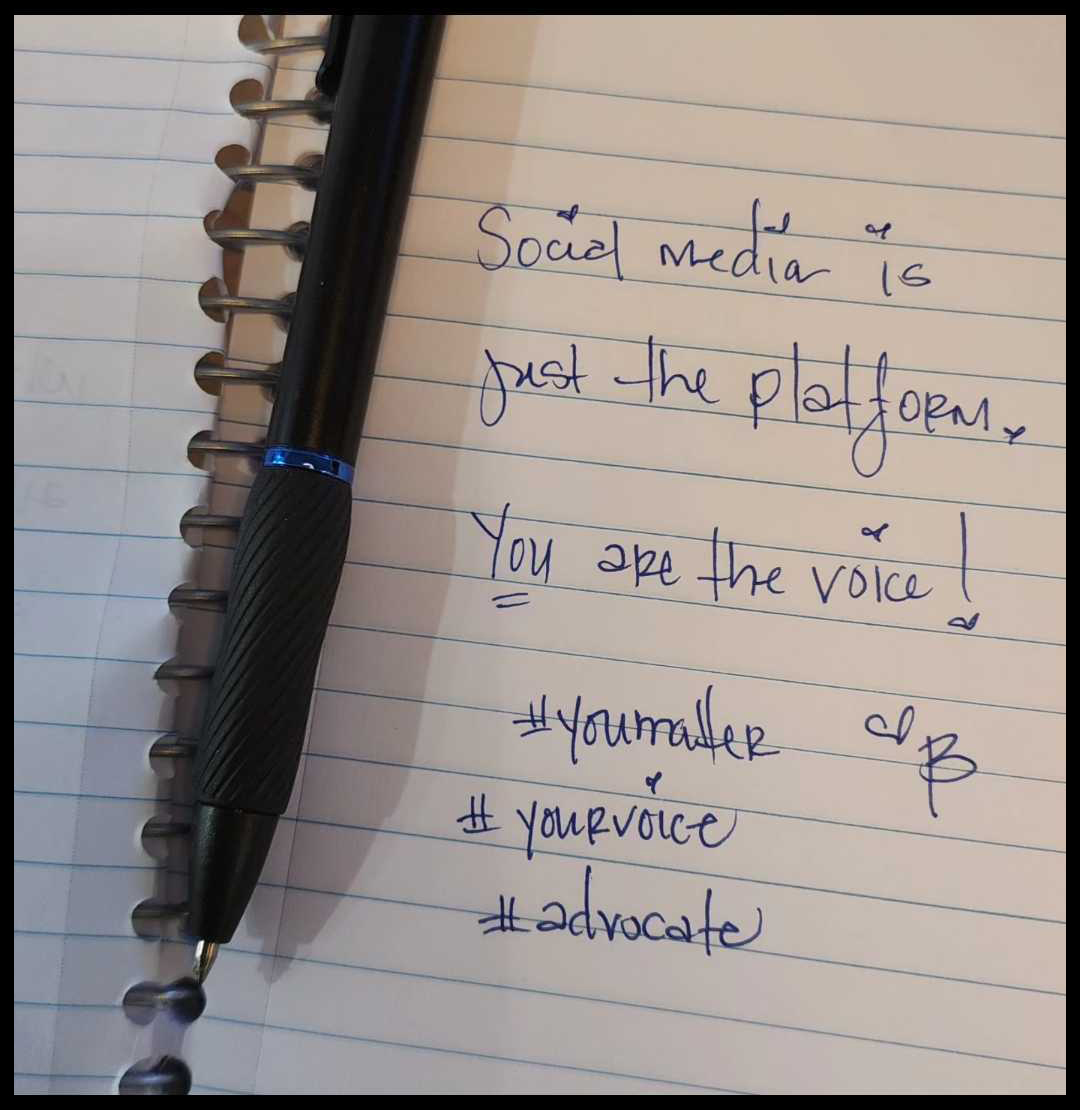
Table of Contents
Social media has changed the way people interact and how they get information around the world. These days most people get their information from social media (Facebook, TikTok, Instagram, X (formerly Twitter), LinkedIn, etc.), mainstream or "traditional" media (television, newspapers, magazines, radio), or a combination of both. Using your own social media, or communicating through mainstream media, can be great ways to inform the public about the issues, concerns, and day-to-day realities of living with HIV. It can also be a little scary at first. By following a few simple guidelines, you can approach working with social or traditional media with a sense of confidence and control.
Please see our fact sheet, Sharing Your Expertise in Mainstream Media, for more information on engaging with mainstream outlets.
Using Social Media
Social media is a term used to describe ways to connect with large groups of people with a focus on networking (communicating with others to share information and contacts). Social media comes in many forms, including blogs, videos (TikTok, YouTube), image sharing sites (Instagram), and social or professional networking sites such as Facebook, Twitter (currently called "X"), and LinkedIn. Podcasts (digital audio or video episodes on a topic or theme) are also gaining popularity as a method for sharing ideas and building influence.
In the past several years, social media has become extremely important for non-profit organizations, causes, public figures, and individual advocates to get information out to large groups of people at little or no cost. Although social media can be a wonderful tool for networking and communicating, it is important to think about how and what you share on the Internet. Recent very public cases have made many more people aware of, and angry about, how much digital information (data) social media sites like Facebook collect – and even sell to other companies – from people who use their services. It is also a good idea to be prepared for Internet "trolls" (those who purposefully post mean and hateful comments).
The Well Project program manager Ciarra "Ci Ci" Covin (@ci.ciiiiii) makes funny, touching, informative Instagram posts about life with HIV.
Tips for Getting Started
Here are a few suggestions to keep you safe and help you get your message across when using social media:
- Nervous about what to say or how to say it? Try to relax and remember that people are reading what you write. Write or type as if you were talking to a real person. Keep it simple and, as much as possible, be positive. Some sites will block you from participating if you are too negative or critical online, if you "slam" or "drag" others, or if you use vulgar language.
- On the other hand, there are many Internet users who behave poorly toward others without consequence, while there have been cases of language not intended to be vulgar (such as sexual health education) or hateful (such as using a term to describe one’s identity that others do not agree with) being flagged as offensive. It may be a good idea to be aware of this occasional double standard – but try not to let it affect your well-intentioned communications.
- While some websites may be accessible to "members only," it is best to assume that whatever you put on the Internet can be seen by anyone. What you share online may be seen by people outside your intended audience, including family members, work colleagues, and others. Although it is a good idea to keep your tone conversational (like talking to a real person), remember that you are not just talking to your best friends.
- To protect your identity and confidentiality, be careful not to share personal information such as your home address, phone number, birth date, or Social Security number. Just as with an interview, identify yourself online as you wish to be identified – use your full name only if you are comfortable doing so. You may choose to use your initials or a pseudonym (a made-up cybername or "handle") to protect your confidentiality. Also remember not to share other information that can be used to identify you (e.g., name of clinic you go to) or others without their consent.
- Fix your "privacy settings" to a level of visibility that feels comfortable for you. You can decide whether you only want "Friends" to see your posts, you want them to be "Public," or some other setting. This must be done manually. This resource can help.
- If your video contains music, make sure you are using royalty-free music so that your videos are not muted or removed for content or copyright violation.

- When writing or posting information for a blog, try to keep your comments under 500 words and tell a story about one particular topic or issue. It can be helpful to consider your audience (who is likely to read what you post) and to use a creative title to attract attention.
- Just the facts! We live in an age of "fake news" and "alternative facts," especially when it comes to health topics like HIV. Misinformation and disinformation can be detrimental to your cause, and confusing to your audience. It is fine to post based on your opinions, but when the conversation turns to facts, be sure to share accurate, evidence-based information from trusted sources so as not to contribute to these dangerous trends.
Expert Perspective: Maria Mejia
We asked A Girl Like Me blogger and social media activist Maria Mejia to give her views and tips on using social media for raising HIV awareness. Here is what she said:
Social media and blogging continue to help me reach all corners of the world with my message of hope. I am grateful because we did not have all this access to information and social media in the past. Social media is crucial for our work and mission in activism and advocacy. Almost everyone has access to social media now, and there are many wonderful opportunities to raise awareness.
Some of my tips and advice include:
- You can use a fake/different name if you are not comfortable using your real name to raise awareness around HIV or join online HIV support groups (Maria has started two very successful support groups on Facebook in English and Spanish)
- Educate yourself about HIV using resources and websites like The Well Project and TheBody.com
- Becoming a successful social media activist requires a lot of time and dedication, but it does not pay! You have to be willing to volunteer your time!
- Sometimes it is easier to get active by joining an existing group or social media campaign than trying to start a new one. I am always willing to share my advice or knowledge with people when they have questions around what might be the best fit for them.
- When you are reaching an international audience, it is helpful to share news and information in different languages and from different parts of the world
Since starting to use social media, I have been able to do more and reach more people around the world than in all my previous years as an activist combined! Even though it can be a beast, and take a lot of time and passion, social media is here to stay. It is something wonderful that I didn't have when I was diagnosed more than 30 years ago. You can make so many friends with people that are in the same situation as you, as well as obtain important information instantly.
You can connect with Maria via Facebook, Twitter, YouTube, or the Facebook group "International Place for People with HIV/AIDS, and the people who love us."

